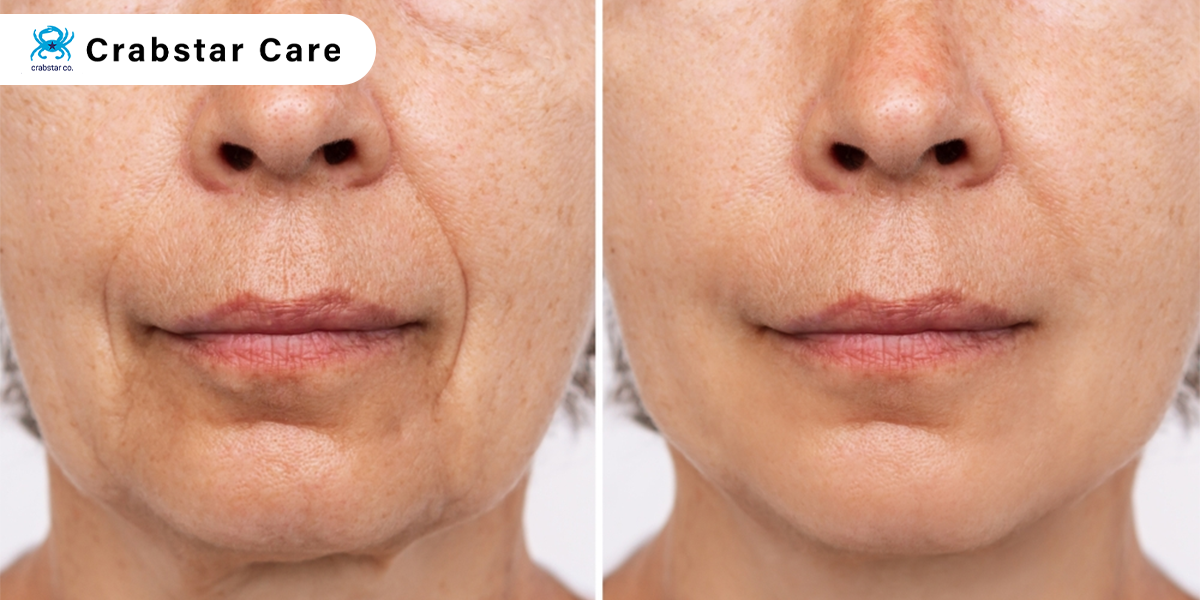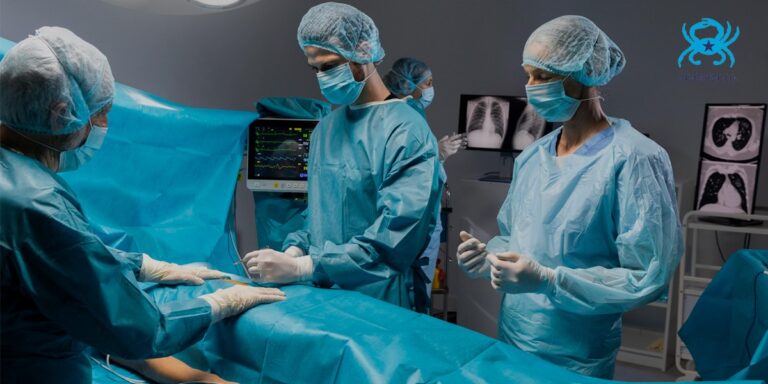
Cancer surgeries mark a critical milestone in treatment, but what follows can be just as challenging. According to research from the National Cancer Institute, nearly 60% of patients struggle with postoperative fatigue, anxiety, and complications after returning home. The transition from hospital to home often leaves patients vulnerable, especially when proper support is missing.
This is where Crabstar Care, led entirely by Joanna, steps in. She manages every case personally, ensuring that each patient receives consistent, one-on-one postoperative carer for cancer focused on physical recovery, emotional comfort, and safe reintegration into daily life.
Table of Contents
- Understanding Postoperative Care for Cancer Patients
- Emotional and Physical Demands After Cancer Surgery
- Why Personalized Attention is the Key to Recovery
- How Crabstar Care Helps You Heal at Home
- The Human Touch: Beyond Medical Tasks
- The Difference One Carer Can Make
- Related Service: Post Operative Care in San Francisco
- FAQs on Cancer Recovery and Postoperative Care
- Conclusion: Healing Through Personal Connection
Understanding Postoperative Care for Cancer Patients
Cancer surgeries can vary in complexity, from mastectomies and tumor removals to organ transplants or reconstructive procedures. Each brings unique recovery challenges. Postoperative care ensures a patient’s healing process is monitored and managed correctly, preventing infections, reducing pain, and improving quality of life.
A postoperative carer provides the bridge between hospital discharge and full recovery. They monitor changes in the patient’s condition, help with hygiene, ensure medications are taken correctly, and maintain a safe home environment. For cancer patients, this care extends beyond the physical; it addresses the fear, uncertainty, and exhaustion that often follow such an intense medical journey.
Emotional and Physical Demands After Cancer Surgery
Cancer recovery is not linear. There are good days when strength seems to return, and there are days when fatigue or pain takes over. Emotionally, patients can feel lost once the daily hospital care ends. The quiet after surgery can be overwhelming, especially when side effects like nausea, insomnia, or loss of appetite appear.
Family members often want to help but may not have the training or time to manage these needs properly. A postoperative carer steps in as a steady presence, someone trained to recognize early signs of complications and provide reassurance through every phase of recovery. This helps patients focus on healing rather than feeling anxious or isolated.
Why Personalized Attention is the Key to Recovery?
In larger care agencies, staff often rotate between multiple patients. That means less consistency and less emotional connection. With Crabstar Care, Joanna offers something rare in the care industry—continuity. She is the sole caregiver, managing every visit, every update, and every small detail.
Why this matters:
- Consistency builds trust – The same person understands the patient’s medical history, moods, and progress.
- Better communication – No shifting instructions or confusion between multiple carers.
- Personal accountability – Joanna personally ensures all needs are met, without relying on a team structure.
- Comfort through familiarity – Patients recover faster when surrounded by predictable routines and a familiar face.
This deep level of involvement makes every care plan naturally adaptable. If the patient feels weak one day or needs motivation to move around the next, Joanna adjusts her approach immediately, something automated systems or rotating staff can’t provide.
How Crabstar Care Helps You Heal at Home?
Every patient’s needs are different, but the foundation of care remains the same: compassion, structure, and attention. Joanna covers both medical and daily living aspects with equal care.
Her care services include:
- Medication and Pain Management – Administering and tracking doses as prescribed, while ensuring comfort.
- Wound and Dressing Care – Cleaning, checking for infection, and communicating updates to doctors if needed.
- Mobility Support – Helping with gentle movement, walking, or physical therapy exercises.
- Meal Preparation and Nutrition Guidance – Offering light, nutritious meals that aid recovery and energy balance.
- Personal Hygiene Assistance – Helping patients with bathing, dressing, and grooming in a dignified manner.
- Emotional Companionship – Providing steady reassurance and conversation that helps patients feel less alone.
- Doctor and Family Coordination – Sharing important updates to ensure everyone involved is informed and aligned.
Each service is delivered by Joanna herself, without intermediaries. Patients and families know exactly who to expect and trust that their needs are being understood firsthand.
The Human Touch: Beyond Medical Tasks
Recovery is not only about medications and wound care; it’s about restoring a sense of normalcy and dignity. Joanna understands that healing happens in quiet moments, like helping a patient take their first walk after surgery or sharing a calm conversation during a difficult day.
Her personal involvement allows her to pick up on unspoken cues: subtle signs of pain, fear, or fatigue that others might miss. This sensitivity often prevents complications and makes the overall recovery experience less stressful.
Many of her clients describe her as both professional and nurturing. For them, she becomes a stabilizing presence who listens, encourages, and celebrates progress, no matter how small.
The Difference One Carer Can Make
It’s easy to assume that a team of carers equals better service, but the opposite can often be true. Having one experienced carer creates an environment of trust and emotional safety. Joanna’s personal involvement eliminates the cold formality that can come with large operations.
What sets Crabstar Care apart:
- Every patient receives one-on-one attention.
- No turnover or substitute staff.
- Care routines are customized on the go, not from a manual.
- Emotional comfort is treated as a vital part of recovery.
Her approach is built on empathy, patience, and reliability—the very qualities that many recovering cancer patients need the most.
Related Service: Post Operative Care in San Francisco
For patients recovering from other surgeries such as joint replacements, cosmetic procedures, or abdominal operations, Crabstar Care also offers post operative care in San Francisco. The same dedication, one-on-one attention, and consistency apply. Every client receives hands-on care from Joanna herself, ensuring a seamless and compassionate recovery experience.
Healing Through Personal Connection
Cancer recovery is not just about following medical instructions; it’s about finding strength in care that feels human. Crabstar Care, through Joanna’s one-on-one approach, ensures every patient is seen, heard, and supported at every step. Her hands-on involvement brings calm, consistency, and comfort to those facing the toughest moments of recovery.
Reach out to Crabstar Care today and let Joanna help you heal with trust, compassion, and peace of mind.
Frequently Asked Questions (FAQs)
1. What does postoperative care for cancer patients involve?
It includes wound care, pain management, medication supervision, mobility support, and nutrition guidance. For cancer patients, it also focuses on emotional reassurance and maintaining daily routines that promote healing and independence.
2. How long do cancer patients usually need postoperative care at home?
The duration depends on the type of surgery and the patient’s condition. Some need help for a few weeks, while others may require ongoing support for months. Joanna adjusts her care timeline based on recovery progress and doctor recommendations.
3. Can family members handle postoperative care instead of hiring a postoperative carer?
Family support is valuable, but cancer recovery can be complex. A professional carer like Joanna brings medical understanding, structured care, and emotional steadiness that family members may struggle to maintain under pressure.
4. What makes Crabstar Care different from larger care agencies?
Crabstar Care is managed solely by Joanna. She doesn’t outsource or rotate staff, which ensures personalized, consistent attention. Patients get one carer who understands their needs completely and stays with them throughout recovery.
5. Does Crabstar Care assist with hospital coordination or medical follow-ups?
Yes. Joanna can communicate with doctors, track medical instructions, and ensure all post-surgery requirements are met on time. This coordination prevents confusion and helps families stay informed without added stress.
6. Is emotional care really as important as physical recovery?
Absolutely. Emotional well-being directly influences healing speed and resilience. Patients who feel supported and understood tend to recover more steadily and experience fewer complications.



